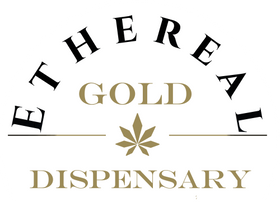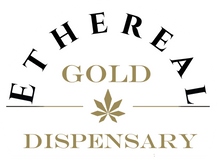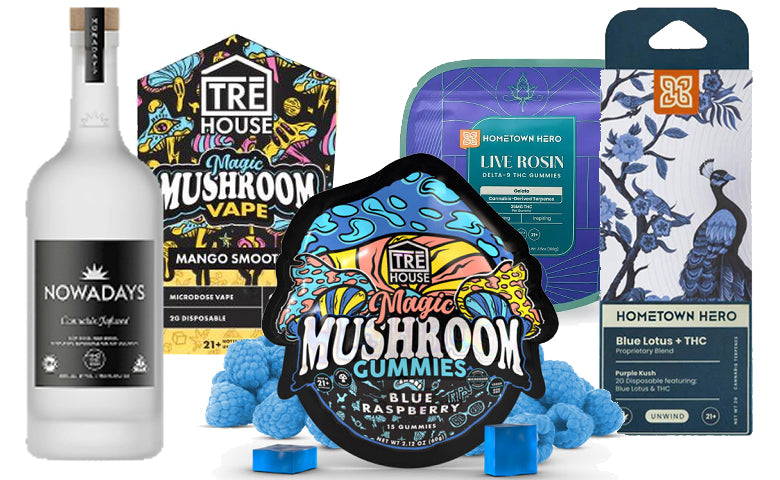| The information provided on this website does not, and is not intended to, constitute legal advice or reliable statements of the status of any laws. Any information, content, and materials available on this site are for general informational purposes only. This information is not intended to you to purchase or not purchase any of our products. The laws mentioned here differ state-to-state and are constantly changing. Information on this website may not constitute the most up-to-date legal or other information. Please consult an attorney where you live or are shipping to for verification the legal status of products on this website. |
In a recent development, CBD shops and hemp farms across Connecticut are on high alert as state officials have issued warnings regarding the enforcement of a newly enacted law concerning the sale of certain products containing THC. This comes after a letter was dispatched earlier this month to businesses associated with hemp and CBD by the state Department of Consumer Protection.
Federal vs. State Law
The federal law stipulates that products containing less than 0.3 percent THC are legal for production and sale. However, a new law in Connecticut (passed this year) has redefined “high-THC hemp products” using a distinct metric. According to this law: edibles, hemp topicals, or hemp transdermal patches are prohibited from containing more than 1 milligram of THC per serving, or 5 milligrams of THC per container. Additionally, the law encompasses other forms of psychoactive THC such as Delta-8 and Delta-11 THC. This law is set to be enforced starting Oct. 1, 2023.
Concerns Among Local Business Owners
The amendment has led to concerns among business owners as it includes numerous products that lack any psychoactive effect. The sentiment among them is that it seems unreasonable to expend state funds and law enforcement resources on products like non-intoxicating bath bombs and body lotions.
Furthermore, this regulation casts a wide net over many topicals and tinctures that contain such a minuscule amount of THC per serving or container that they are clearly not intended to be intoxicating. It's a known fact that all hemp contains some level of THC, unless it undergoes a process where the THC is forcibly stripped out using solvents. This process not only increases the production cost, but may also alter the natural benefits of the hemp products. The new law, therefore, puts an undue burden on producers and retailers who have been compliant with the previous THC limits, and may potentially drive some small operators out of business.
Historical Context
The journey of Connecticut’s hemp growing and processing industry commenced in 2018, following the signing of a bill by then-President Donald Trump, which legalized the cultivation of hemp plants with less than 0.3 percent THC and the sale of CBD products derived from these plants.
The enactment of this bill opened up a new frontier in the cannabis industry, particularly in Connecticut. It led to the legalization of a variety of psychoactive cannabis products, provided they were derived from hemp and contained less than 0.3% total THC. Interestingly, the 2018 Farm Bill only considers Delta-9 THC and THCa as part of this total THC calculation, thereby inadvertently allowing for the production and sale of other psychoactive cannabinoids like Delta-8 and Delta-11 THC — so long as they were derived from hemp. This legislative oversight led to a burgeoning market for these psychoactive hemp-derived products, which were technically legal under the federal law. The market saw a proliferation of products that (while adhering to the letter of the law) may have strayed from its spirit, leading to the recent amendments in Connecticut's state law to further regulate THC levels in hemp products.

Recent Enforcement Actions
In a more recent scenario, some CBD shops in Connecticut had been engaging in the chemical alteration of CBD into THC. This led to several CBD shops, especially those selling products containing chemically altered THC known as Delta-8, being raided as part of an initiative to curb illegal sales, as stated by Attorney General William Tong.
It's noteworthy to mention that according to the 2018 Farm Bill, Delta-8 THC is federally legal as long as it is derived from hemp and the total THC content remains below 0.3%. This federal legality has created a complex regulatory landscape where the federal and state laws diverge. The federal law's leniency towards Delta-8 THC derived from hemp has led to a burgeoning market for such products. However, the state of Connecticut has taken a more stringent stance with the recent law, aiming to regulate the sale of high-THC hemp products more tightly.
The enforcement actions in Connecticut reflect a growing concern among state officials regarding the sale and distribution of psychoactive cannabinoids, even if they are technically compliant with federal law. The raids on CBD shops selling Delta-8 THC products signify a shift in enforcement priorities and highlight the ongoing regulatory challenges faced by hemp and CBD retailers in the state. This divergence between federal and state law creates a murky legal territory for business operators, who may find themselves compliant with federal law but in violation of state regulations.
The recent enforcement actions underscore the necessity for clear, coherent, and harmonized regulations across federal and state levels to ensure the responsible sale and consumption of cannabinoid products. They also highlight the evolving nature of cannabis laws and the need for stakeholders to stay abreast of both federal and state legal frameworks to navigate the complex regulatory environment effectively.
HB 6699 Immediate Effects: The Impact of HB 6699 on Hemp Businesses
The enactment of HB 6699 marks a significant shift in the regulatory landscape surrounding THC products in Connecticut, impacting both consumers and stakeholders in the hemp and CBD industry. The law aims to establish a clear demarcation on the permissible THC content in hemp products, thereby ensuring adherence to both state and federal guidelines.
This sudden change in legislation is poised to negatively affect all hemp businesses, regardless of whether they are selling just CBD or federally legal intoxicating cannabinoids like THC-P, Delta-8 THC, or HHC. Here are some of the ways in which the industry is likely to be impacted:
-
Increased Compliance Costs: The new law necessitates rigorous testing and compliance to ensure that the THC content in products remains within the stipulated limits. This will inevitably lead to increased operational costs for testing, certification, and compliance, which could be burdensome for small to medium-sized enterprises.
-
Product Reformulation or Discontinuation: Many existing products may now fall outside the new THC limits set by Connecticut law, requiring businesses to either reformulate these products or discontinue them altogether. This could lead to significant financial losses, especially for products that were popular among consumers.
-
Market Uncertainty: The sudden change creates a climate of uncertainty among both retailers and consumers. Retailers may find it challenging to adapt quickly to the new regulations, while consumers may find their preferred products unavailable or altered to comply with the new law.
-
Reduced Consumer Choice: The new law limits the variety of products available to consumers, especially those seeking the benefits of cannabinoids other than CBD. This could drive consumers to seek products in neighboring states or from unregulated sources, potentially leading to a loss of business for local retailers and a rise in black market sales.
-
Impact on Innovation: The hemp industry has been a space of innovation, with businesses exploring the potential benefits of various cannabinoids. The new restrictions may stifle innovation as businesses might be hesitant to invest in the development of new products under a more restrictive regulatory environment.
-
Legal Discrepancies: The discrepancy between federal and state laws regarding certain cannabinoids creates a complex legal landscape for businesses to navigate. This legal ambiguity can deter investment and growth in the Connecticut hemp industry.
-
Public Education and Awareness: There will be a need for extensive public education to inform consumers and stakeholders about the changes in the law and its implications. This education campaign will require time, resources, and a coordinated effort among various stakeholders.
- Tax Dollars for the State: Hemp operators in the state can apply for cannabis licenses, but that would also come with more regulatory hoops to jump through. This also adds the requirements to use the state’s cannabis track-and-trace system. This would increase business costs, while providing more money to the state.
The enactment of HB 6699 underscores the delicate balance that regulators must strike to ensure consumer safety while also fostering a conducive environment for the growth and sustainability of the hemp industry in Connecticut.
FAQ
What is the main focus of the new law HB 6699 in Connecticut?
The new law, HB 6699, focuses on regulating the THC content in hemp products sold in Connecticut. It sets a specific limit on the amount of THC that edibles, hemp topicals, or hemp transdermal patches can contain, which is 1 milligram of THC per serving or 5 milligrams of THC per container. This law aims to align with federal guidelines while establishing clear state-specific regulations on THC content in hemp products.
How does HB 6699 affect the sale of Delta-8 THC products?
HB 6699 impacts the sale of Delta-8 THC products by setting a stricter standard for THC content in hemp products. Even though Delta-8 THC is federally legal when derived from hemp, the new state law imposes a tighter control, which may lead to the discontinuation or reformulation of Delta-8 THC products to comply with the new THC limits set by the state.
What are the implications of HB 6699 for hemp and CBD business owners?
Business owners in the hemp and CBD industry may face increased compliance costs, the need for product reformulation or discontinuation, market uncertainty, reduced consumer choice, potential stifling of innovation, legal discrepancies between federal and state laws, and the necessity for public education and awareness campaigns regarding the new law.
How does the new law align with or diverge from federal law?
While federal law allows for products with less than 0.3 percent THC, Connecticut's HB 6699 redefines “high-THC hemp products” using a different metric, setting a specific limit on THC content per serving and per container. This divergence creates a complex legal landscape for businesses and may lead to legal ambiguities, especially concerning cannabinoids like Delta-8 THC and Delta-11 THC that are federally legal under certain conditions.
What led to the enforcement actions against some CBD shops in Connecticut?
The enforcement actions were triggered by some CBD shops in Connecticut engaging in the chemical alteration of CBD into THC, particularly Delta-8 THC. These actions, as stated by Attorney General William Tong, were part of an initiative to curb illegal sales and ensure compliance with both state and federal laws governing the sale of cannabinoid products.







